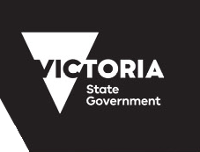We acknowledge the Traditional Owners, Aboriginal communities and organisations of the Victorian Mallee. We recognise the diversity of their cultures and the deep connections they have with their lands and waters. We value partnerships with them for the health of People and Country.
We also pay our respects to Elders past, present and emerging; and recognise the primacy of Traditional Owners’ obligations, rights and responsibilities to use and care for their traditional lands and water.
Traditional Owners of Country across the region have provided the following introductions.
We are part of our Country and our Country is part of us. Bunjil the creator, made our land, waterholes, animals, and plants and gave the Bram-bram-bult brothers, sons of Druk the frog, the responsibility to finish the tasks he had set for himself. They had to bring order to the new world by naming the animals and the plants, and to make the languages and give the Lore.
This is why Wotjobaluk Peoples are obligated to look after Country and Culture and keep it healthy and strong. Country heals us: it connects us to our dreaming stories, to our ancestors and spirits. It is the foundation of our future. All parts of Country are connected and if our Country is treated with respect and care, then it will continue to sustain and provide for us. It is vitally important that we continue to share our traditional land management practices so the land, waters and all living resources can thrive.
First Peoples of the Millewa-Mallee are people of the river and the scrub and desert in an area known today as the North West of Victoria. We are descended from families whose Ancestors are part of this Country – Ancestors who cared for it, sang to it, danced on it and kept it strong and fat. Our Ancestors passed through generations a responsibility to care for Country.
The First People of the Millewa-Mallee Aboriginal Corporation (FPMMAC) represents the rights and interests of all First Peoples of the Millewa-Mallee, including in relation to current settlement processes under the Traditional Owner Settlement Act 2010 (Vic). The First People of the Millewa-Mallee also have a registered claim for Native Title under the Native Title Act 1993 (C’wealth).
Under the Aboriginal Heritage Act 2006 (Vic) (the Act) FPMMAC is the appointed Registered Aboriginal Party (RAP) and acknowledged Traditional Owners, of the Country in the north west of Victoria that runs south of the Murray River to the Mallee Highway, and west from the Calder Highway to the South Australian border, including the Murray-Sunset National Park. FPMMAC was appointed as RAP on 5th December 2018.
Gilbie and other Munatunga Elders have connections to the Robinvale River area including the Hattah Lakes areas in particular the land and water provides all aspects of our lives both physically, culturally, and spiritually. It’s important to understand it’s a living culture – there is still cooking out on site on the coals. Everyone comes out once you start cooking – cousins, aunties, uncles.
Our Ancestors. Our Fathers and Grandfathers used to hunt and gather in these areas. There were tin huts down the river where our people were born and bred. We camped down the river because blackfellas weren’t allowed in town but we ate healthy and rich back then. It really shows how things have changed, especially the condition of the river country. There just is not as many animals – there are less kangaroos and more pest plants and animals. The hunting days are gone, and customary hunting is no longer allowed.
Water is survival on our lands. Its more water on the lands we need, to regenerate waterbirds, ducks and swans – there just isn’t as many left.
We need to protect what we have left and help regenerate it. Working together with influential departments promotes jobs, understanding and connection to Country like our ancestors. The Mallee region, is where we need to help the most. If it dies so does our culture in these areas we are a part of. It’s for the kids to be able to connect in the coming generations and carry our culture into the future together.
The Latji Latji Mumthelang are people of the river and the scrub and desert area to the south and west of it. We are descendent from families whose ancestors are part of this Country; ancestors who cared for it, sang to it, danced on it and kept it pirrin and Mudla. The ancestors taught our descendants through each generation about our responsibility to care for our Country, despite the decimation caused by colonisation. Even when we were taken away, we still belonged. Country is family.
LLM would like to be involved and have a bigger impact on ngukko decisions, with a priority aim of getting ngukko to Country. We are particularly keen to get ngukko out to the river Country that hasn’t received ngukko due to changed ngukko management regimes and competing priorities, and where ngukko is important to restore or maintain cultural outcomes. Co-management of land and ngukko is at the centre of healthy communities and healthy Country.
On ngukko specifically, LLM have many values and uses including:
- It’s important that ngukko comes to the places we hunt and gather, not just to places others value, such as farms and irrigation.
- We need to have our gatherings, our corroborees and our ceremonies.
- If you’ve got no ngukko, you can’t regenerate land.
- As late as in the 1950s we still travelled by canoes, trapped, fished, traded with the farmers up and down the river, met friends, and met family.
- We need to be able to look after Country, preserve Country, ngukko those trees, manage erosion, restock ngukkoways with native fish – native fish look after the ngukkoways.
The peoples of the Nyeri Nyeri and Werigia of northwest Victoria have an everlasting connection to this country through our ancestors. We look forward to continuing working, celebrating, learning and sharing with our neighbouring clans and the wider community in caring for Country and utilising the country’s great resources sustainably and responsibly.
We the Tati Tati, have interests within the boundaries of the Mallee Catchment Management Authority where our country lies. Tati Tati Country (land and water) belongs to Tati Tati and Tati Tati belongs to Country, we never own it as we belong to it, and it belongs to us. What does this mean? It’s a relationship rather than ownership, Traditional Owners (TO’s), waterways, flora and fauna are a family where we are all related to each other, and you cannot own your relatives, you can only belong to them.
To Tati Tati people, land and water is life because land and water connects us to all aspects of our lives physically, culturally, and spiritually. We have obligations to our ancestors and God to be on Country protecting our cultural heritage, waterways, flora, and fauna but since colonisation, this has never happened. Currently, Tati Tati’s rights to water and land are unrecognised by governments and we cannot gain access to any of our sacred waterways.
Wadi Wadi people, water is life because water connects us to all aspects of our lives both physically, culturally, and spiritually. We have an obligation to our ancestors to be on Country protecting our cultural heritage, waterways, flora, and fauna but since colonisation, this has never happened.
Naturally, we would love to see a healthy country and at the moment, we are not seeing that and although we would ideally like our waterways and country (bush) to go back to the way it was before colonisation, we fully understand that is never going to happen. But we, the Wadi Wadi are willing to work in partnership with government departments to ensure the health and wellbeing of our waterways and country for many years to come.
Our partnership should be one of mutual respect, trust and honesty. We see a future where our Indigenous knowledge can combine with departments to help solve the issues of our waterways and country, but Wadi Wadi people must not be excluded from this process as we’re one element that Country (bush) is missing, one is water and the other is Traditional Owners. If our people are not on Country, then Country will never heal or get better, even if you put millions of dollars into it.
To us country needs a healthy bush, water and Indigenous rangers on country. If one of these elements is missing, it’s not a healthy country and it can never heal. Places of significance include Nyah/Vinifera, Lake Tyrrell, Tyrrell Creek, Burra Creek and all river junctions and all waterways on country.


